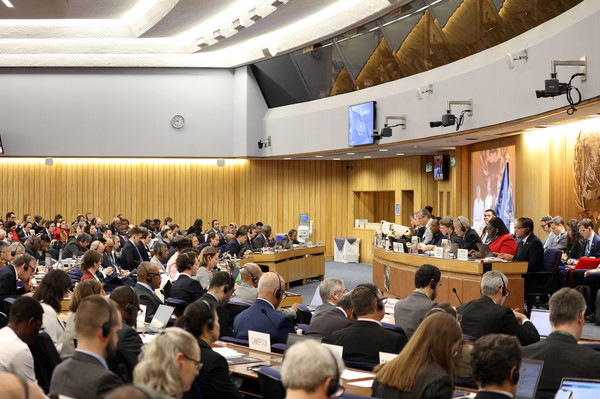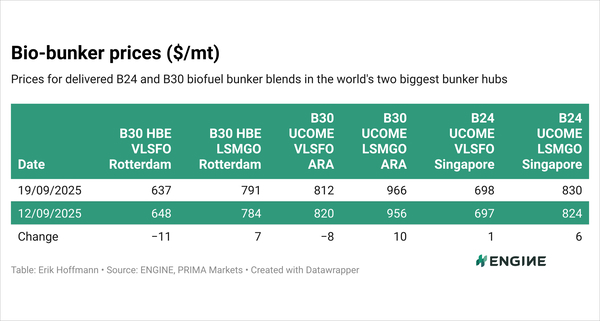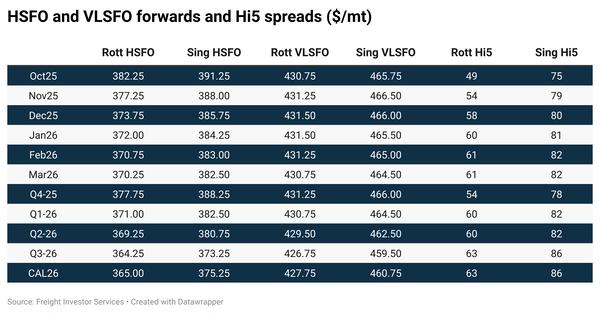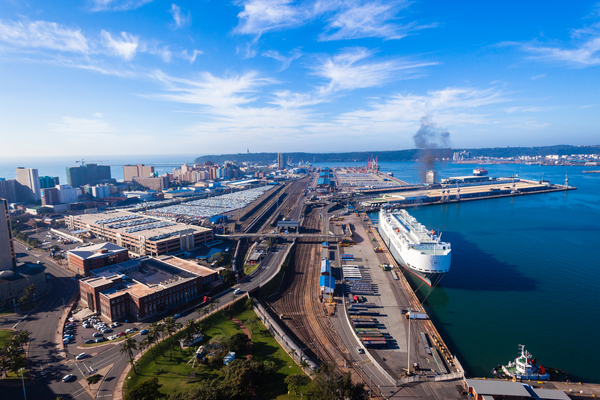The Week in Alt Fuels: Gearing up for the high-stakes showdown
A growing number of shipping companies are preparing for a lower-emission future. Next month’s vote will show whether governments stand with the sector or let political pushbacks derail ambition.
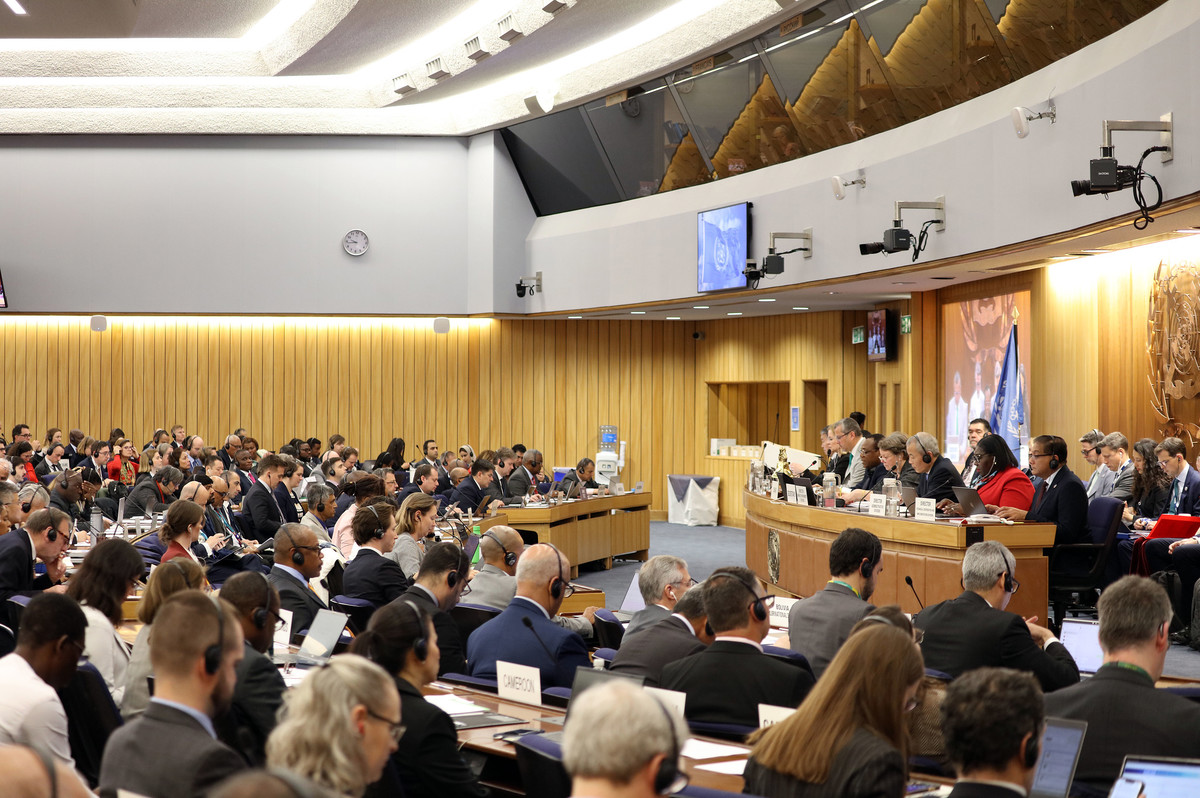 IMAGE: The IMO approved the Net-Zero Framework in April. Now it is up for adoption in October. IMO
IMAGE: The IMO approved the Net-Zero Framework in April. Now it is up for adoption in October. IMO
Support grows for adoption
Policy circles warn that delaying adoption could derail momentum. They argue that the International Maritime Organisation's (IMO) approved Net-Zero Framework (NZF) can accelerate fuel production, drive infrastructure build-out and give the clarity needed to pick between competing pathways.
Predictable incentives will narrow the price gaps with fossil fuels and strengthen the case for shipowners, while giving suppliers confidence to expand, they say.
Many shipowners, shipbuilders, technology firms, insurers, investors and cargo owners will argue that the IMO’s NZF is the missing piece needed to unlock large-scale funding for alternative fuels, and many are already preparing to take the leap.
“If the NZF is adopted, we could see the much-needed investments in green fuel production all over the world accelerating,” Sanne Frias Henriksen, policy head at A.P. Moller-Maersk said.
The head of Hapag-Lloyd’s fleet, Silke Lehmköster, believes “the debate is no longer about the what, but the when.”
Hanwha Ocean Europe’s managing director, Claire Wright, called October pivotal for developing new technologies. “Decarbonisation is not an option,” she said, but without regulatory clarity it is difficult to prioritise whether methanol, ammonia or hydrogen fuel cells should come first.
The IMO framework must allow real, measured emission factors to be used rather than relying on default emission factors, said engine maker WinGD’s chief executive Dominik Schneiter. That way the framework reflects real progress and doesn’t stifle engine innovation.
Cargo owners such as Nike, Microsoft, Amazon, Renault and Ford have already agreed to pay green freight premiums through coalitions like ZEMBA or through direct partnerships with shipowners.
“If we continue to think and act like the CO2 would be for free, then this transition would take much longer time. We don’t have that time, we need to act now,” Johan Larson, managing director of Volvo Trucks Malaysia said.
Unlocking transition gains
Shipping’s green fuel transition also presents opportunities with global economic reach.
A study by US-based Vanguard Renewables forecasts that the US could capture $2-3 trillion in economic value by 2050 from shipping’s appetite for liquefied biomethane (LBM). India, Lithuania, Spain, Portugal, Finland, China, Oman and Egypt are among the other countries that could emerge as potential low-cost production and export hubs for low- and zero-emission fuels.
Some port authorities have rolled out market-led incentives to stimulate demand and show clear commercial potential.
For instance, Singapore’s Maritime and Port Authority has cut port dues for ships using alternative fuels, offering full concessions for green hydrogen, methanol or ammonia and up to 30% discounts for biofuels and LNG with reduced methane slip. The Port of Rotterdam offers to waive up to €500,000 ($590,000) in port fees for vessels bunkered with low- and zero-emission fuels that can offer up to 90% reduction in GHG emissions.
Hong Kong’s Marine Department will offer HKD 500,000 (about $63,000) to suppliers for their first two LNG or green methanol bunker operations, within a year of the suppliers completing risk assessments.
Political resistance hardens
Despite these opportunities, political resistance lingers.
The US has openly rejected the IMO’s framework and even threatened retaliation against backers. Saudi Arabia and others lobbied heavily leading up to the IMO vote in April, when 16 countries opposed the framework and 24 abstained, according to UCL Energy Institute’s Tristan Smith.
If the 63 member states that voted “yes” to the framework do so again in October, 16 states that abstained will need to be flipped to vote “no” to block adoption by a two-thirds majority of voters. It is also crucial that major flag states like Liberia and the Marshall Islands don’t move against the framework, Smith said this week.
Not all onboard
There were also fresh objections to the framework within the industry this week.
A group of mostly oil and gas tanker companies said they have “grave concerns” about the IMO framework in a joint statement reported by Reuters. The companies include Bahri, Frontline, Trust Bulkers, Common Progress, Dynacom, Dynagas, Emarat Maritime, Gaslog, Hanwha Shipping, Angelicoussis Group, Seapeak and Stolt Tankers.
“As it stands, we do not believe the IMO NZF will serve effectively in support of decarbonising the maritime industry … nor ensure a level-playing field as intended,” they said, calling for “critical amendments” and “realistic trajectories” in the framework before considering adoption, Reuters reported, citing the statement.
The American Bureau of Shipping’s (ABS) chief executive Christopher Wiernicki urged the IMO to “pause and rethink” this week, arguing that “shipping and the IMO are on different trajectories” and warned that “achieving net zero for shipping by 2050 looks like a wildcard.”
The stakes in October
Many companies have already started investing in new vessels, fuels and technologies. Adoption may raise near-term costs, but a clear framework with the right incentives could give them confidence to scale up. This is expected to bring down renewable fuel prices over time, to make the transition more viable and unlock returns.
For the IMO and its member states, the stakes are high. October’s vote will test political will and multilateralism. It’s a once-in-a-generation chance to give the sector a clear direction and set an example for other industries. Pushing the decision back may ease immediate pressure to act. But this would leave shipowners and fuel producers in limbo and make the transition more costly later.
Governments must now decide: anchor shipping’s future in certainty or let politics pull it apart.
In other news this week, Dutch shipping company Anthony Veder will begin operating two of its vessels on bio-LNG to generate compliance surpluses to sell into Gasum’s FuelEU Maritime pooling scheme. Anthony Veder’s LNG carriers Coral Energy and Coral EnergICE are both chartered by Gasum.
August was the first month without alternative fuel-capable vessels orders since 2018, DNV's senior consultant Kristian Hammer said. But vessel deliveries have continued. Since 1 August, 10 LNG- and five methanol-capable vessels have entered into service, bringing the current LNG-capable fleet to 781 ships and the methanol fleet to 75.
South Korean classification society Korean Register (KR) has granted an approval in principle (AiP) for HD Hyundai’s newly developed safety system for ammonia-capable ships. The system can capture any ammonia gas leaked during operation and convert it into aqueous ammonia, KR explained.
French carmaker Renault will purchase emission reductions from Norwegian shipping line United European Car Carriers (UECC) by running ships on liquefied biomethane (LBM). “Pilot shipments of Renault vehicles started on 1 July from Zeebrugge, Belgium to Esbjerg, Denmark,” UECC said. The LBM consumed on these ships is projected to cut around 1,000 mt/year of CO2-equivalent, which will be credited to Renault.
By Konica Bhatt
Please get in touch with comments or additional info to news@engine.online
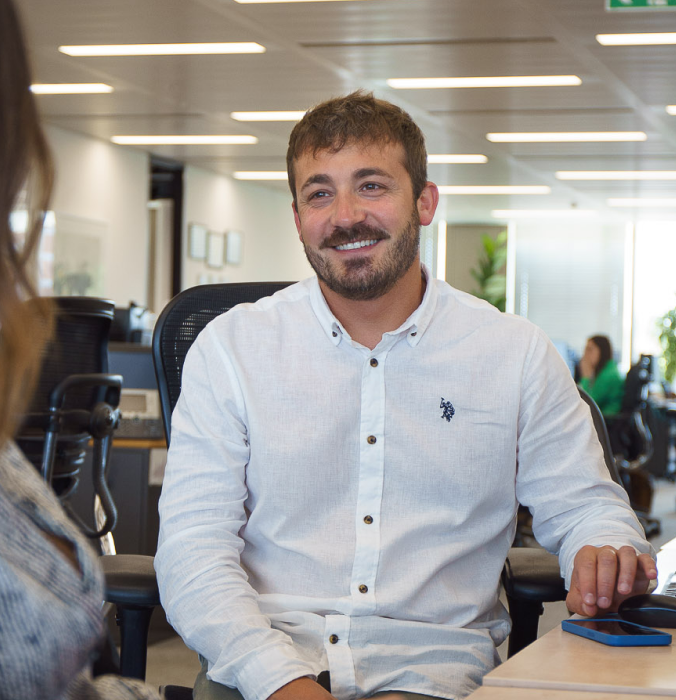
Contact our Experts
With 50+ traders in 12 offices around the world, our team is available 24/7 to support you in your energy procurement needs.

